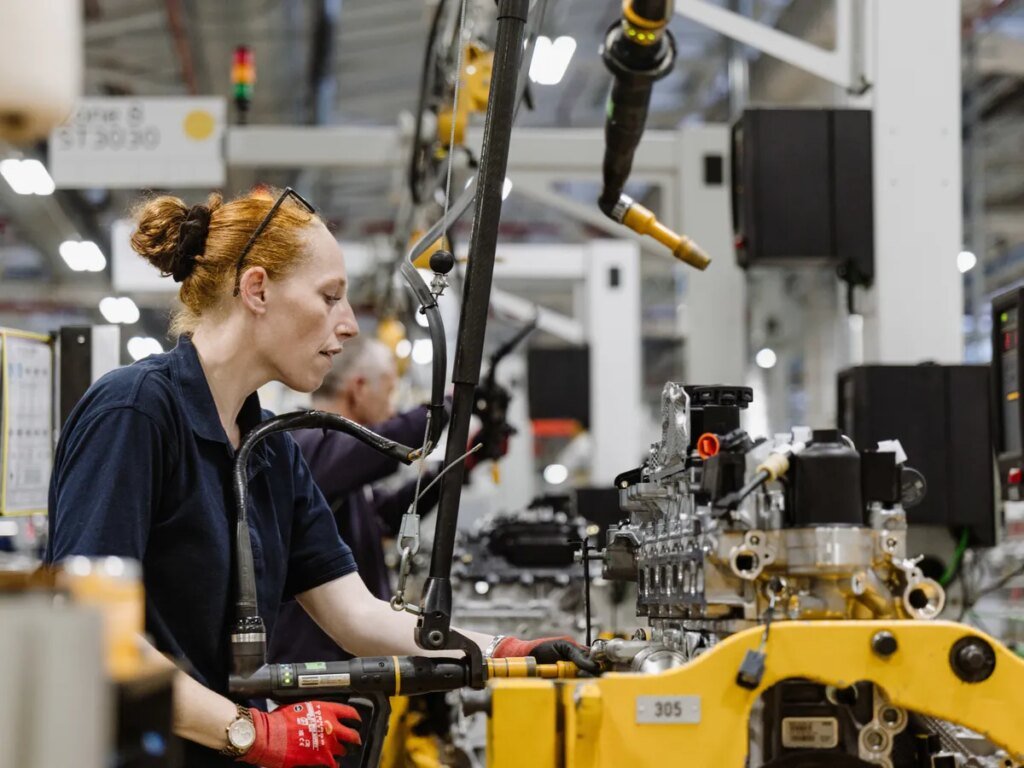Production was down by 23.8 per cent compared to last October, said the Society of Motor Manufacturers and Traders (SMMT).
Just over 59,000 cars left factories, 18,474 fewer than in the same month last year, as JLR, Britain’s biggest automotive employer, began its phased restart of operations after a cyber incident forced a pause in production.
The car manufacturer, which has large manufacturing bases alongside the M54 near Wolverhampton and Telford, as well as Solihull, said earlier this month that its performance in Quarter 2 of this year was “impacted by significant challenges” which included the cyber attack in September and the impact of US tariffs announced earlier in the year.
It said revenue was impacted by the production stoppages the company initiated in September after being hit by a cyber incident on August 31.
Following recent trends, almost half the cars made in the UK in October were either battery electric, plug-in hybrid or hybrid.
Car production for the UK market fell by 10.6 per cent to 13,785 units, while output for export declined by 27.1 per cent.
The SMMT said 45,225 cars were produced for global markets – representing more than three quarters of total output – with the EU, US, Turkey, China and Japan the top five export markets.
Shipments to the EU, US and Japan all fell, while those to Turkey and China rose.
Mike Hawes, SMMT chief executive, said: “Another difficult month for UK vehicle production as the impact of the earlier cyber attack continued to be felt.
“Growth is on the horizon, however, and Government has recognised the automotive industry as a pillar of national strategic importance, backing it with an industrial strategy and additional £1.5 billion to drive manufacturing competitiveness.
“Investment competitiveness also depends on a healthy domestic market, however, notably for EVs, and introducing a new electric vehicle excise duty is the wrong measure at the wrong time.
“This new tax will undermine demand, so Government must work with industry to reduce the cost of compliance and protect the UK’s investment appeal.”

